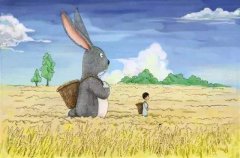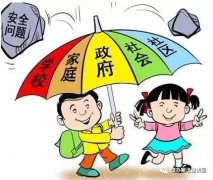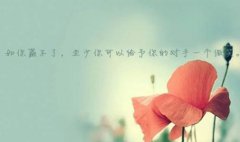Unit 3 Inventors and inventions
Part 1: Teaching Design
第一部分:教学设计
Period 1: A sample lesson plan for reading
(THE PROBLEM OF THE SNAKES)
Aims
To help students develop their reading ability
To help students learn about inventors and inventions
Procedures
I. Warming up by learning about the past participle used
as attributives
分词作定语
分词前置
We can see the rising sun. 我们可以看到东升的旭日
He is a retired worker. 他是位退休的工人
分词后置 (i分词词组;ii 个别分词如given, left; iii 修饰不定代词 something等) There was a girl sitting there. 有个女孩坐在那里
This is the question given. 这是所给的问题
There is nothing interesting. 没有有趣的东西
过去分词作定语
与其修饰的词是被动关系,相当于一个被动语态的定语从句。
Most of the people invited to the party were famous scientists.
Most of the artists invited to the party were from South Africa.
典型例题
1) The first textbook ___ for teaching English as a foreign language came out in the 16th century.
A. have written B. to be written C. being written D. written
答案D. 书与写作是被动关系,应用过去分词做定语表被动,相当于定语从句 which is written
2)What's the language ____ in Germany?
A. speaking B. spoken C. be spoken D. to speak
答案B. 主语language与谓语动词之间有被动的含义。
spoken是动词speak的过去分词形式,在句中作定语,修饰主语
language, spoken 与 language有被动关系, 该句可以理解为:
What's the language (which is) spoken in German?
II. Pre-reading
What is invention? Invention is the successful exploitation of new ideas,
new objects. By reasoning, analyzing and experimenting new things and
new ideas are invented for the benefits of the world.
Look at the photo, please. This man is a great inventor called Thomas Edison.
Thomas Edison received over 1000 U.S. patents, the most issued to any individual. Some people also credit him with an invention that received no patent: the modern corporate research laboratory. While this conclusion is arguable, his Menlo Park laboratory was intentionally designed to be an invention factory. It housed a large reference library, and often served to showcase the Wizard's
work. Some who worked in or visited the lab later became competitors.
“box telephone” telegraph sewing machine light bulb
III. Reading for forms
Read the text again to: cut/ the sentence into thought groups, blacken the predicates, darken the
IV. Copying and making sentences
You are asked to copy all the useful expressions into your notebook after class as homework. You
VI. Reading to draw a diagram of the text and retell the test in your own words
became 14____ and could be easily caught. I decided to use the last one. Unluckily, I tried twice but failed and I had to 15____ my plan. My third 16____ was successful. I collected the snakes and the next day we 17____ them all back into the wild. 18____ by my friends and relations, I decided to send my invention to the 19____ office to get 20____ for my successful idea. (Key: 1. upset 2. snakes 3. rid 4. chance 5. distinguish 6. harming 7. try 8. habits 9. Second 10. approaches 11. removing 12. trap 13 perfume 14. sleepy 15. adjust 16. attempt 17. released 18. Pressed 19. patent 20. recognition ) Comprehension questions 1. After being asked to get rid of the snakes in the yard, the writer felt very _____. A. upset B. proud C. angry D. disappointed 2. From the text we know that _____. A. the writer knew nothing about the habits of snakes B. if the snakes are cooled, they will become sleepy C. the writer succeeded in catching the snakes without any difficulties D. it is easy to get a patent 3. No invention will get a patent unless it is_____. A. a scientific theory or mathematical model B. a new animal or plant variety C. truly novel D. a game or program 4. Which of the following statements about a patent is NOT true according to the passage? A. A search will be made to find out that your product really is different from everybody else’s. B. A large number of patent examiners will examine whether your claim is valid or not. C. If you pass the test, your application for a patent will be published 16 months from the date you apply. D. You’ll know if you get the recognition by the size of your bank balance. (Key: 1. B 2.
B 3. 4. C) Notes to some difficult sentences 1. Here was a chance for me to distinguish myself by inventing something that would catch snakes but not harm them. 这回我有机会表现一下自己了,我要发明一个既能捉住蛇又不 会伤害它们的东西。 distinguish oneself: to cause(oneself) to be eminent or recognized 意思是“使自己与众不同;使 自己出名”; that 引导定语从句限定 something。 They have distinguished themselves as dedicated social workers. 他们以全心全意的社会工作者 而著称。 2. This was in the expectation that the snakes would bite again. 这是(因为我)预料到蛇还 会再咬人。 句中的 that 从句是一个同位语从句,做 expectation 的同位语。 There was a general expectation that he would win.普遍认为他会获胜。 3. The criteria are so strict that it is difficult for new ideas to be accepted unless they are truly novel. 评定专利的标准非常严格,因此除非设想真的很新颖,否则很难被接受。 这里 that 引导结果状语从句。主句与从句是原因与结果的关系,译作“因此”。 She described the events so graphically that I could almost see them.他把那些事件描述得活灵活 现,我几乎能亲眼目睹了 …… 此处隐藏:7823字,全部文档内容请下载后查看。喜欢就下载吧 ……
- 2020房地产销售主管年终工作总结 2020-08-29
- 虚拟多台位互感器检定装置投资项目可行性分析 2020-08-29
- 大学助学金申请书范文1700字 2020-08-29
- 教师的工作计划 2020-08-29
- 液压阀符号及几位几通的办判断方法 2021-06-09
- 高中历史 必修二 第三单元复习课件 2024-10-23
- (目录)2018-2023年中国绿色食品行业电子商务发展可行性 2025-04-10
- (选修5)1-1有机化合物的结构特点作业 2024-11-04
推荐阅读
四宫格-儿童数独练习60题(支持打印)
《铁路建设项目工程质量管理办法》铁总建设[2014]292号
Unit 1 Section A 时间观念强的美国人
今日头条

每日精选
-
 2020教师资格幼儿保教知识与能力考前冲刺题及答2020-09-15
2020教师资格幼儿保教知识与能力考前冲刺题及答2020-09-15 -
 未成年工不得从事哪些劳动2020-09-15
未成年工不得从事哪些劳动2020-09-15 -
 最真诚的周末祝福短信参考2020-09-15
最真诚的周末祝福短信参考2020-09-15
- 1、支付成功后,为何无法下载内容?付费后下载不了,请核对下微信账单信息,确保付费成功;已付费成功了还是下载不了,有可能是电脑的浏览器兼容性问题或者手机机型不支持的问题。
- 2、付费后能否更换浏览器或者清理浏览器缓存后进行下载操作?更换浏览器或者清理浏览器缓存会导致下载不成功,请不要更换浏览器和清理浏览器缓存。
- 3、如何联系客服?






